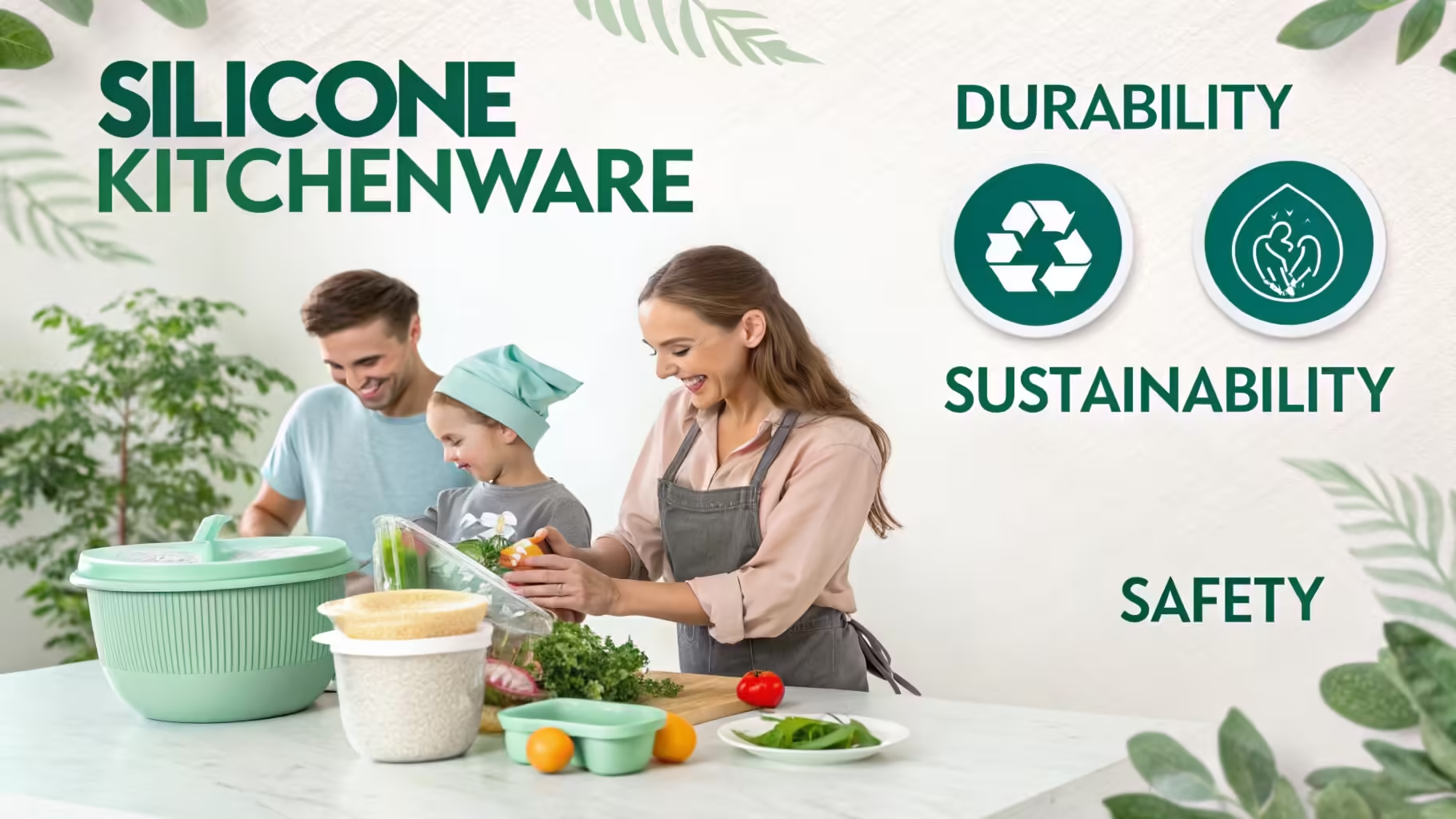
Choosing eco-friendly kitchenware is essential for reducing environmental impact. But why is silicone kitchenware often considered more eco-friendly than other materials?
Silicone kitchenware is favored for its sustainability, durability, and safety, making it a superior choice for environmentally conscious consumers.
I remember switching to silicone kitchenware and realizing how much it reduced my household's waste. Understanding its eco-friendly benefits has made me a loyal user ever since.
What Makes Silicone Kitchenware More Eco-Friendly Than Other Materials?
Silicone kitchenware stands out as an eco-friendly option due to its sustainable production, long lifespan, and recyclability.
Silicone is derived from abundant natural resources, offers superior durability, and can be recycled, making it a greener alternative to plastic and metal kitchenware.
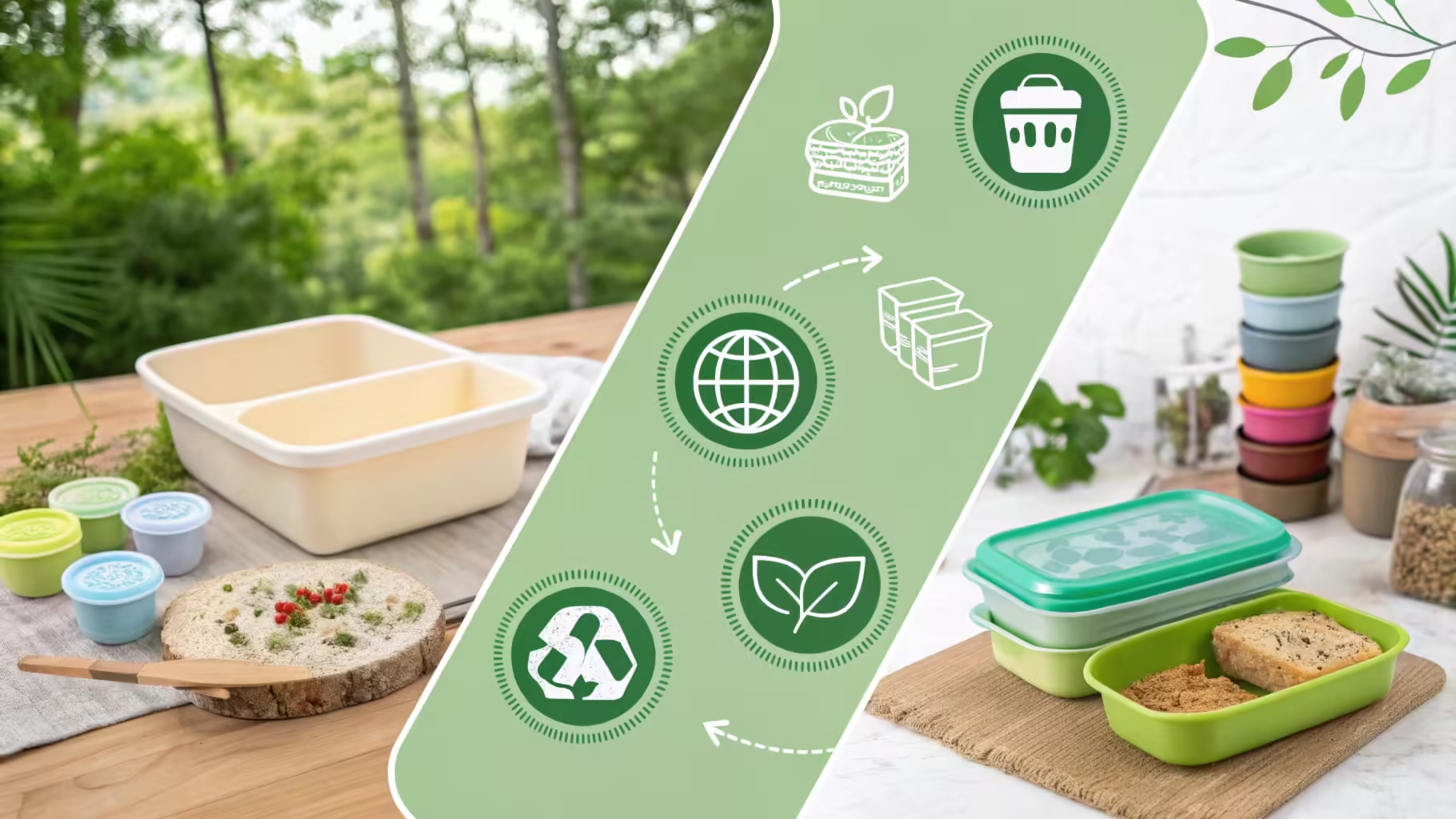
Sustainability of Silicone
- Natural Resources: Silicone is made from silica, a component of sand, which is plentiful and non-depleting.
- Energy-Efficient Production: Manufacturing silicone requires less energy compared to producing plastics and metals.
- Recyclability: High-quality silicone can be recycled, reducing landfill waste.
Longevity and Durability
| Material | Lifespan | Environmental Impact |
|---|---|---|
| Silicone | 10-20 years | Low, due to durability |
| Plastic | 1-5 years | High, due to frequent replacement |
| Metal | 15-30 years | Moderate, depends on usage |
Reduced Waste
Silicone kitchenware’s long lifespan means fewer products end up in landfills. Unlike single-use plastics, silicone items can be reused countless times without degradation.
Health and Safety
Silicone is free from harmful chemicals like BPA and phthalates, ensuring that using it doesn't contribute to environmental pollution through chemical runoff.
Are There Any Certifications to Look for in Eco-Friendly Silicone Kitchenware?
Certifications ensure that silicone kitchenware meets specific environmental and safety standards.
Look for certifications like FDA, LFGB, and ECOCERT to guarantee that silicone kitchenware is safe and environmentally friendly.
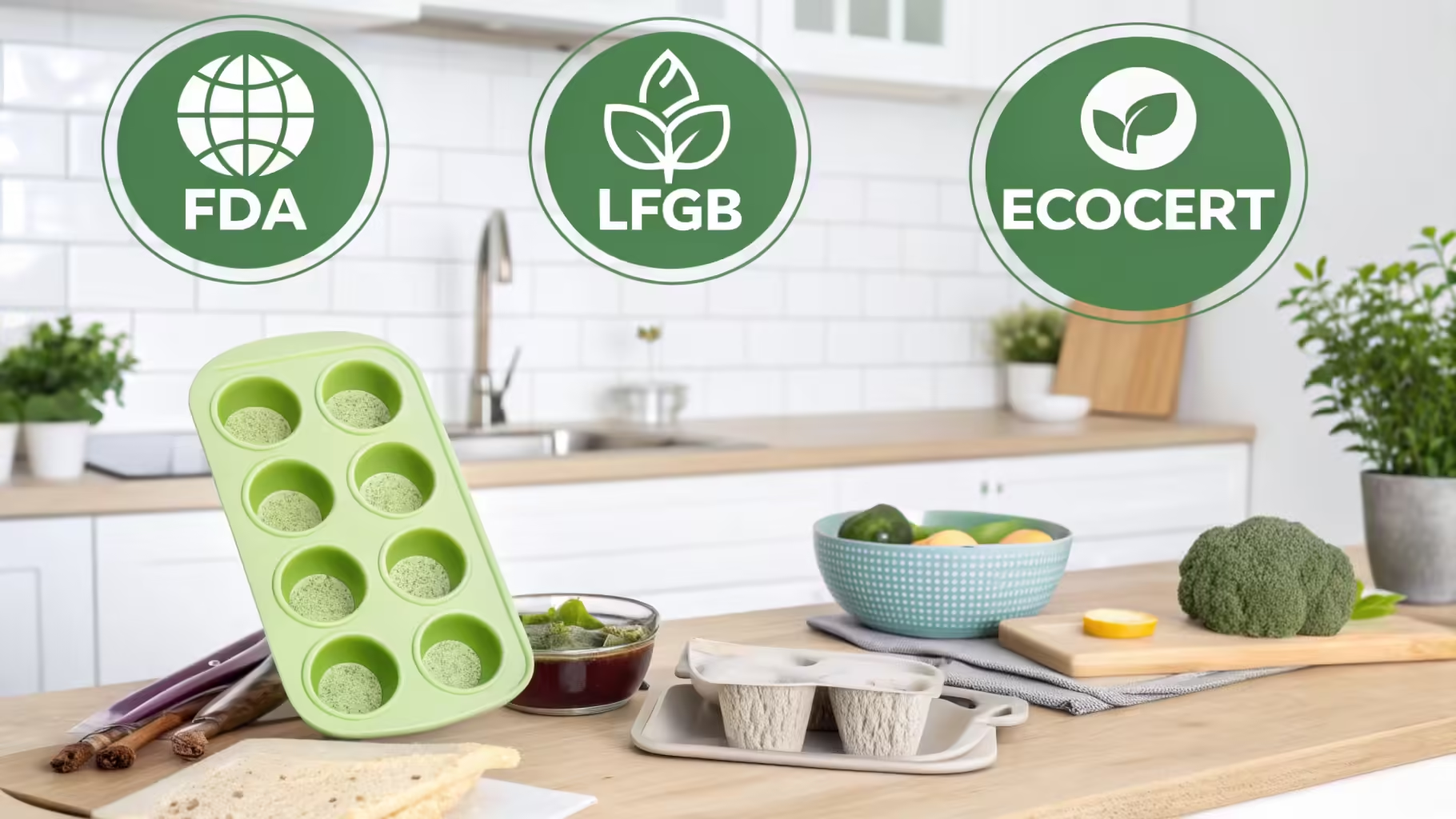
Key Certifications
- FDA (Food and Drug Administration): Ensures that the silicone is safe for food contact.
- LFGB (German Food Contact Certification): Confirms that the silicone is free from harmful chemicals.
- ECOCERT: Indicates that the product meets organic and ecological standards.
Importance of Certifications
| Certification | What It Ensures | Recognized By |
|---|---|---|
| FDA | Safety for food contact | United States |
| LFGB | Chemical safety in food-grade products | Germany and Europe |
| ECOCERT | Compliance with organic and ecological standards | International |
How to Verify Certifications
- Check Packaging: Certified products usually display their certifications on the packaging.
- Manufacturer’s Website: Verify certifications through the manufacturer’s official site.
- Third-Party Verification: Use third-party websites to confirm the authenticity of certifications.
How Long Do Eco-Friendly Silicone Kitchenware Items Typically Last?
The lifespan of silicone kitchenware depends on usage and maintenance, but generally, they are highly durable.
Eco-friendly silicone kitchenware can last between 10 to 20 years with proper care, significantly reducing the need for frequent replacements.
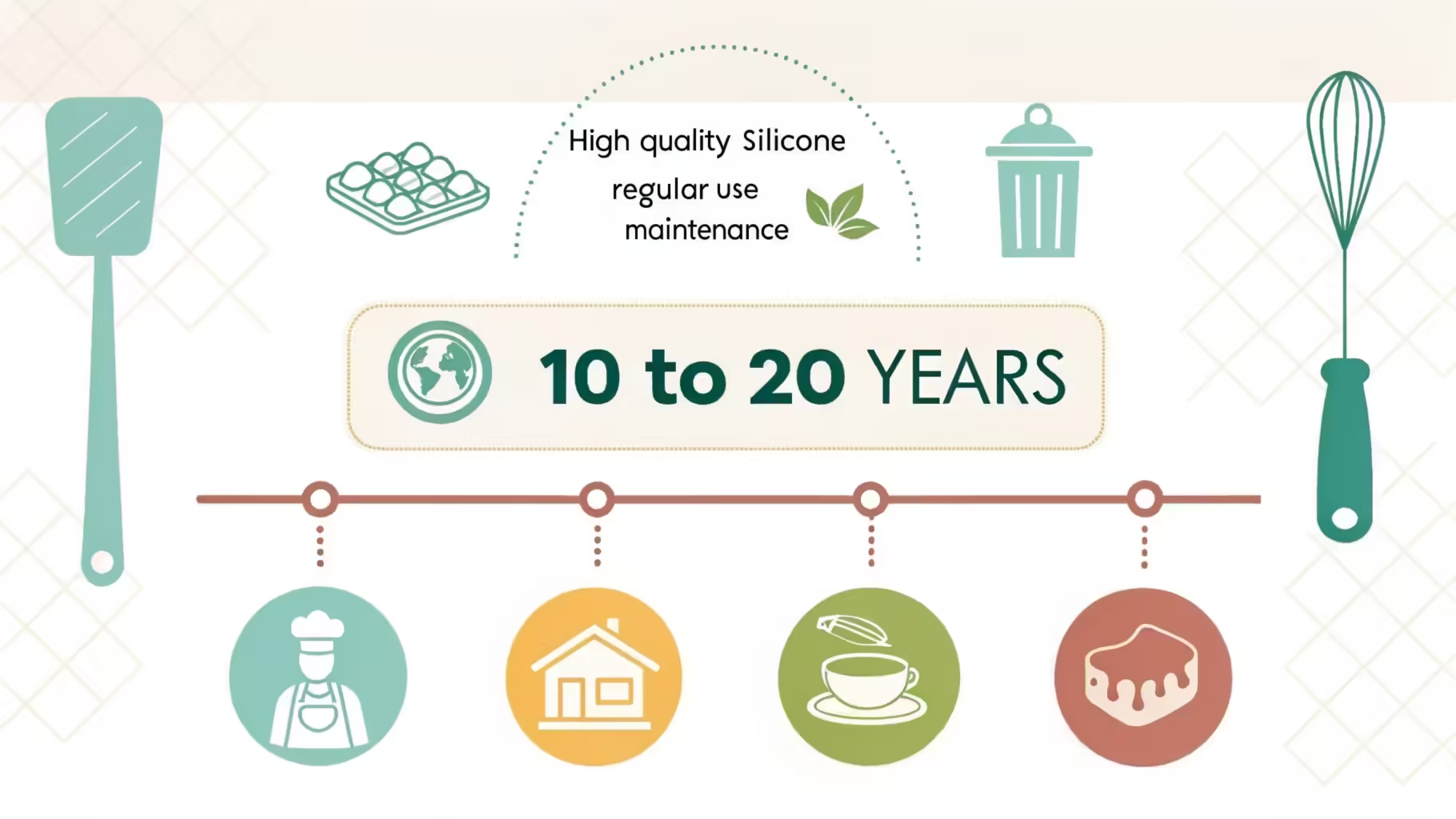
Factors Affecting Longevity
- Quality of Silicone: Higher-grade silicone tends to last longer.
- Usage Frequency: Regular use may wear down the material over time.
- Maintenance: Proper cleaning and handling extend the lifespan.
Longevity Comparison
| Material | Average Lifespan | Replacement Frequency |
|---|---|---|
| Silicone | 10-20 years | Rare |
| Plastic | 1-5 years | Frequent |
| Metal | 15-30 years | Infrequent |
Maintenance Tips
- Avoid Sharp Objects: Prevent tearing by not using knives or other sharp utensils on silicone items.
- Proper Cleaning: Hand wash or use the dishwasher’s gentle cycle to maintain integrity.
- Storage Practices: Store silicone items properly to avoid stretching or deformation.
Can Eco-Friendly Silicone Kitchenware Be Used in the Microwave and Oven?
Silicone kitchenware is versatile and can safely be used in both microwaves and ovens.
Eco-friendly silicone kitchenware is heat-resistant and can withstand temperatures up to 250°C, making it suitable for microwave and oven use.
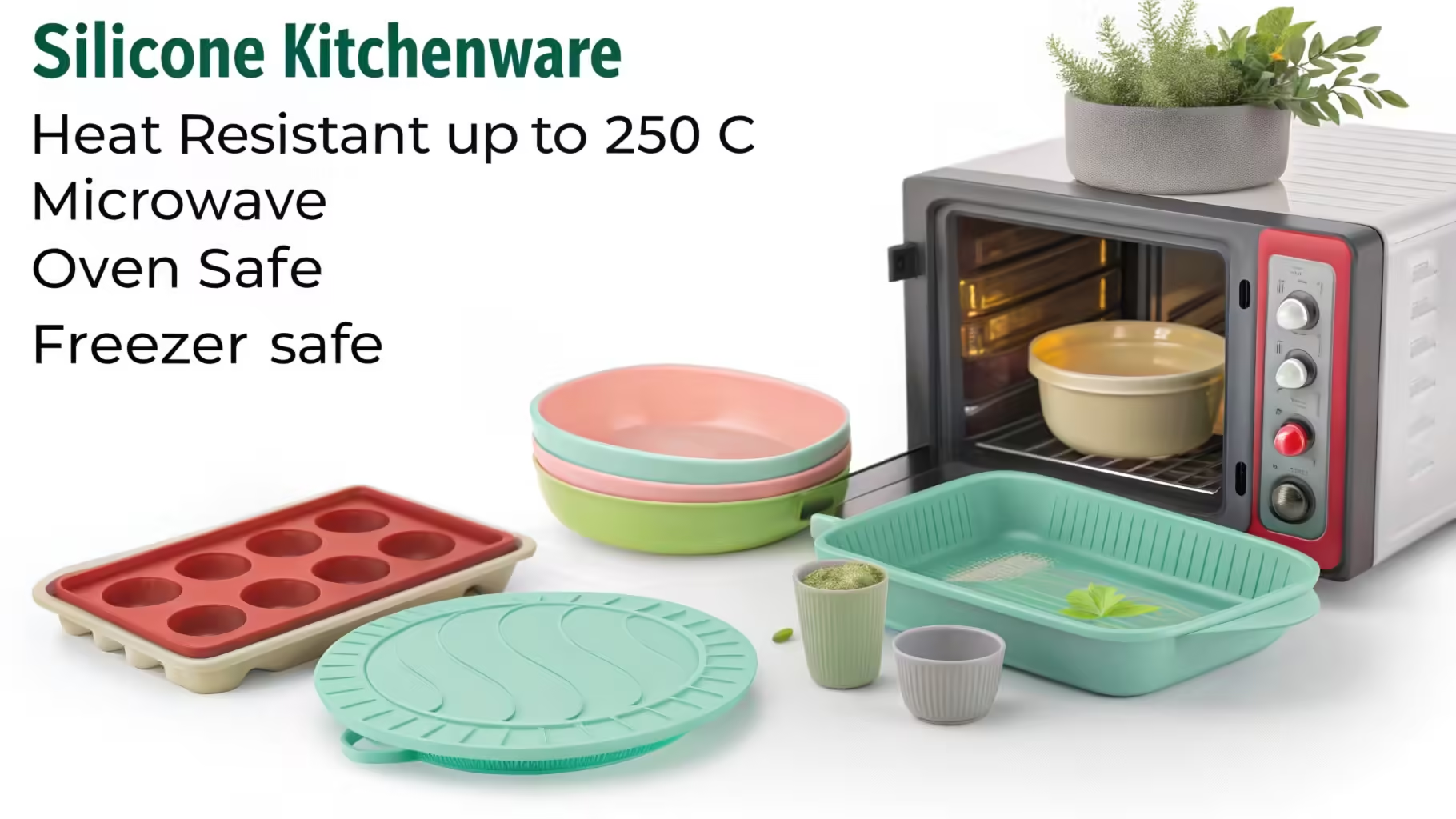
Heat Resistance of Silicone
- Microwave Safe: Silicone can be used for heating food in the microwave without melting or releasing toxins.
- Oven Safe: Suitable for baking and cooking at high temperatures, up to 250°C.
- Freezer Safe: Can also be used in the freezer, making it versatile for various storage needs.
Usage Guidelines
| Appliance | Suitable Temperature Range | Precautions |
|---|---|---|
| Microwave | Up to 250°C | Avoid direct contact with heating elements |
| Oven | Up to 250°C | Use oven mitts to handle hot silicone items |
| Freezer | Below 0°C | Ensure items are properly sealed to prevent freezer burn |
Benefits of Heat-Resistant Silicone
- Safety: No risk of melting or releasing harmful chemicals at high temperatures.
- Versatility: Can be used for a wide range of cooking and baking applications.
- Ease of Use: Flexible and non-stick properties make it easy to handle and clean.
Are There Any Eco-Friendly Silicone Kitchenware Brands That Offer a Warranty?
Many eco-friendly silicone kitchenware brands stand behind their products with comprehensive warranties, reflecting their commitment to quality and sustainability.
Brands offering warranties on eco-friendly silicone kitchenware provide assurance of product longevity and customer satisfaction.
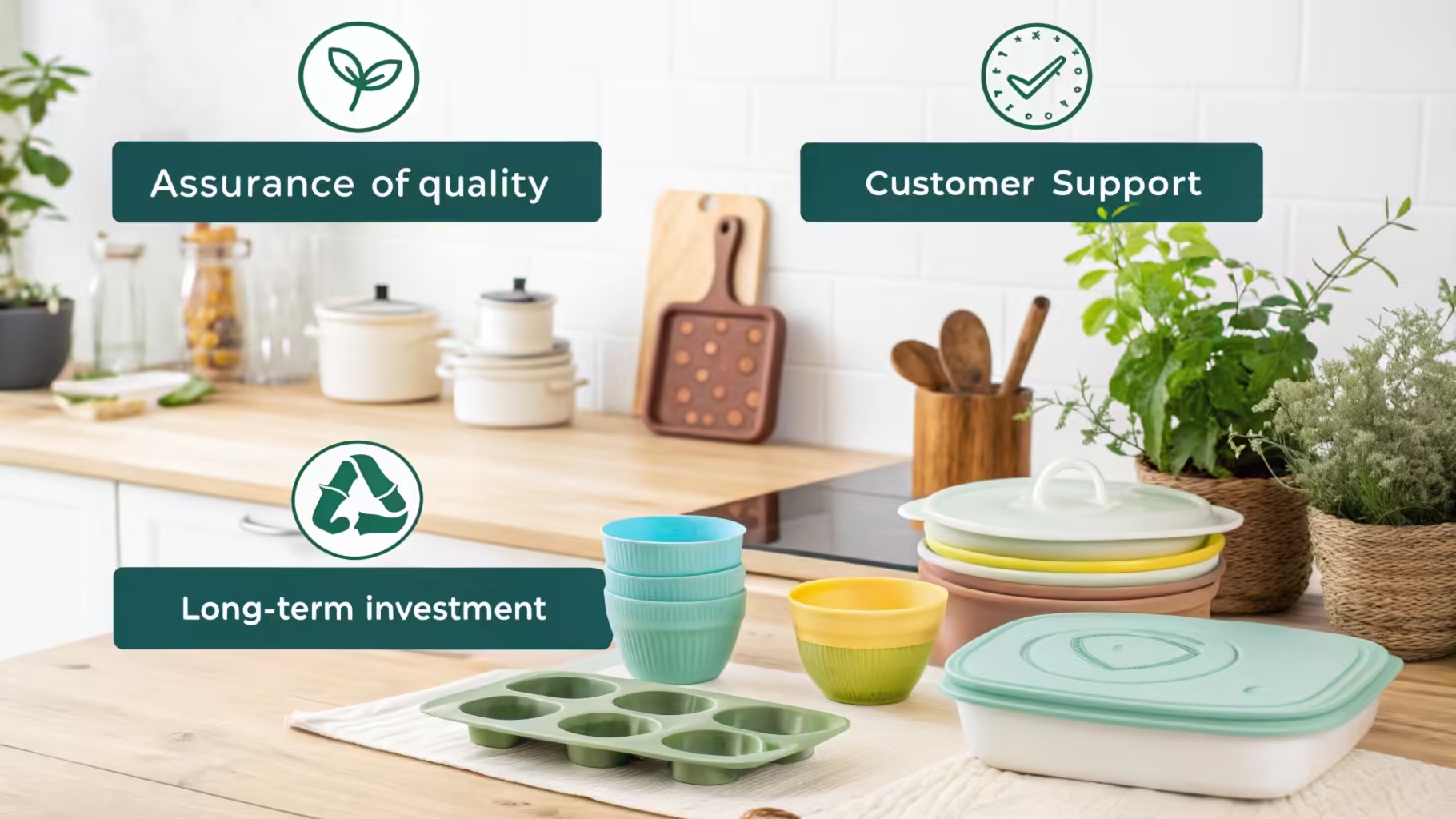
Benefits of Warranties
- Assurance of Quality: Guarantees that the product is free from defects.
- Customer Support: Access to customer service for replacements or repairs.
- Long-Term Investment: Enhances the value of your purchase by ensuring durability.
Brands Offering Warranties
| Brand Name | Warranty Details | Additional Benefits |
|---|---|---|
| Silpat | Lifetime warranty against manufacturing defects | Free replacements |
| Le Creuset | Lifetime warranty on certain silicone products | Dedicated customer service |
| OXO | Limited lifetime warranty on silicone items | Easy return and replacement process |
How to Utilize Warranties
- Register Your Product: Ensure you register your purchase with the manufacturer to activate the warranty.
- Understand Terms: Read the warranty details to know what is covered and the duration.
- Proper Care: Follow usage and maintenance guidelines to avoid voiding the warranty.
Choosing a Brand with a Warranty
- Evaluate Coverage: Look for warranties that cover a broad range of defects and offer long-term protection.
- Research Reputation: Choose brands known for honoring their warranties and providing excellent customer service.
- Consider Value: Weigh the warranty benefits against the product cost to ensure it meets your needs.
Conclusion
Silicone kitchenware offers a sustainable, durable, and versatile alternative to traditional kitchen materials. By understanding what makes it eco-friendly, recognizing important certifications, appreciating its longevity, knowing its heat-resistant properties, and choosing brands that stand by their products with warranties, you can make informed decisions that benefit both your kitchen and the environment. Embracing eco-friendly silicone kitchenware is a step towards a greener, more sustainable lifestyle.
